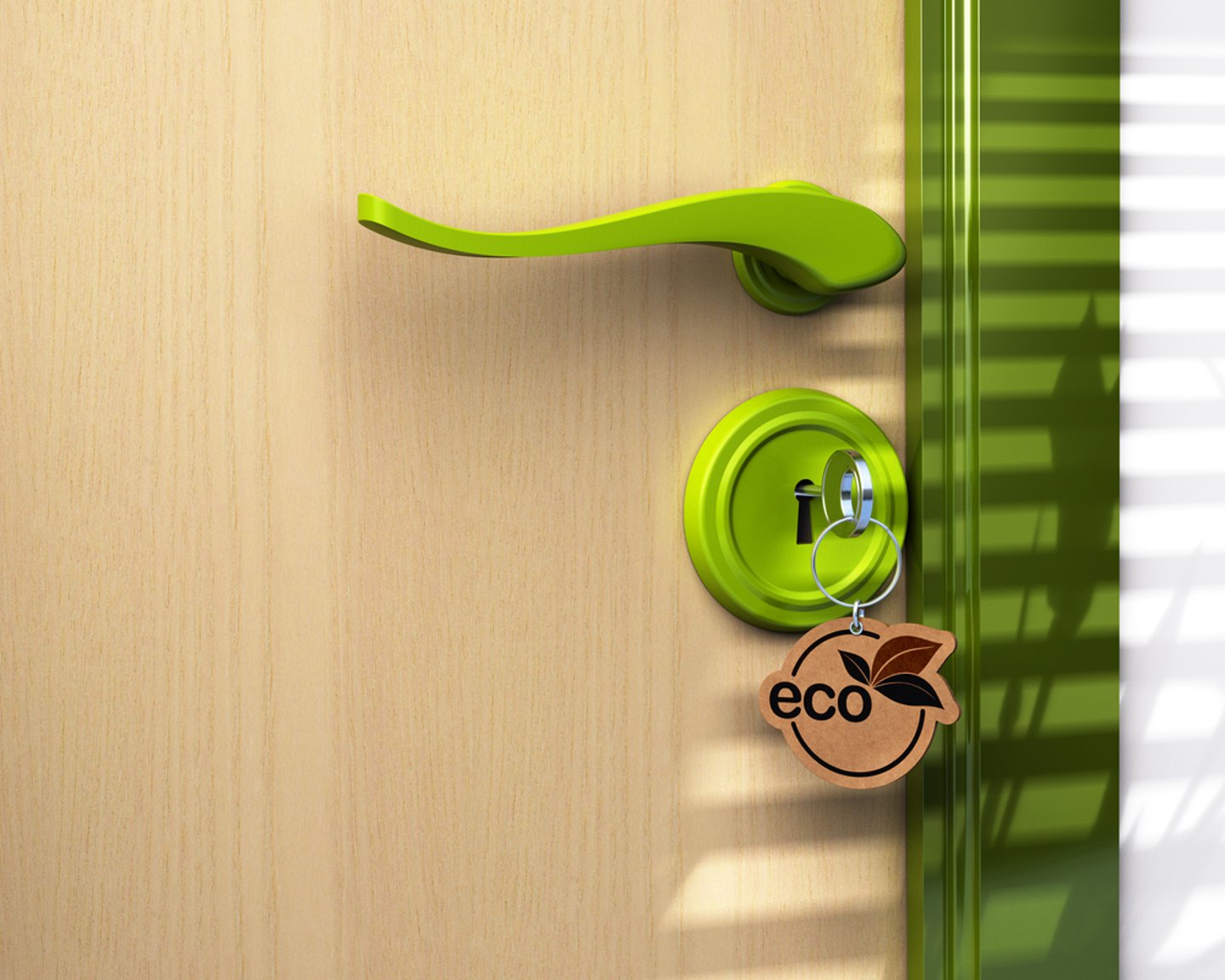How Can the Hotel Industry Avoid Greenwashing?
We’ve all seen the headlines about todays’ consumers wanting travel to be more sustainable. Take Booking.com’s survey last year, which found 83% of travelers agreeing this was vital, yet half saying there aren’t enough sustainable travel options available to them. Or Expedia, who found that 59% of their customers were willing to increase their spending to make their trip more sustainable. Even Google shows that the term ‘green hotel’ has quadrupled in search volume since March 2020.
We asked our hotel suppliers at Bidroom* what eco practices they had already introduced into their business, from water and waste management and ecosystem conservation to labor and fair business procedures. The results were encouraging: over 80% of them had introduced at least one of these.
Yet, one of the challenges to the movement towards a more sustainable future is the lack of regulation when it comes to exactly what an eco-hotel is. An individual hotel could introduce recycling and plastic-free amenities, but this does not mean it’s an eco-hotel. In fact, a tiny proportion of hotels worldwide can be recognized as ‘eco’ - less than 6,000 out of 800,000 in total. This may be why a quarter of Bidroom.com subscribers currently don’t trust eco-labels.
So how can the hotel industry collectively respond to the consumer demand for sustainable travel, be transparent and consistent in their practices, and avoid greenwashing?
GREENWASHING - A DEFINITION
Sustainable tourism is defined by the UN Environment Program and UN World Tourism Organization as: “Tourism that takes full account of its current and future economic, social and environmental impacts, addressing the needs of visitors, the industry, the environment and host communities.”
On the other hand, greenwashing is when companies disseminate misleading information so as to present an environmentally responsible public image. In terms of hotels, this could be giving a false impression of the energy or products used by the hotel, or the treatment of its people, supply chain, and the local area.
MOVING TOWARDS STANDARDIZATION
The key to our entire industry moving forward is by becoming standardised. Take the example of eco-certifications. At the moment there are currently over 200 eco-certification agencies worldwide, from national bodies to international organisations, which is further fragmenting progress towards the future of sustainable tourism. Once we can standardise our approach and measurement to sustainability, we can get customers to trust the information hotels are providing.
As this is not going to happen overnight, there is a workaround. Most certification bodies are using Global Sustainable Tourism Council (GSTC). Selecting an eco-certification that uses these as part of their selection process, such as Green Key, is a great first step on the path towards being a more sustainable hotel. There are many benefits of this: preparing for a future of more regulation of green hospitality, long-term operational cost savings and brand differentiation to give a competitive advantage.
SEARCHING FOR ECO-FRIENDLY HOTELS
On the tech side, these certification programs are now being integrated into major booking platforms to signpost more eco-friendly accommodation options to potential guests. We introduced our eco-tag program back in November, at the same time as Booking.com and Google. Make it a priority to find out how your hotel is being marketed to consumers on these listings and add clearly signposted and easy-to-understand CSR communications on your website.
CARBON CALCULATORS & OFFSETTING
Google Flight’s introduction of a CO2 emissions calculator for prospective journeys was a game-changer in the travel industry. Yet, accommodation is still the hardest nut to crack when it comes to transparency on carbon footprint because the measurement is much more complex, encompassing both operational and embedded carbon within each building.
Luckily there are some tech solutions that exist within the hostel industry that hoteliers can take advantage of. At Bidroom we currently work with CHOOOSE, a global tool that offers customers the option of paying to offset carbon at check-out. Similar solutions include Squake and Earthcheck. As with the eco-labels, make sure to check what your guests are seeing when they pay for a room at your hotel or partner with one of these tools on your direct booking platform.
OPERATIONAL TECH
When it comes to the actual operation of a hotel, innovative technology solutions are cropping up all the time.
Smart energy management tech can increase your bottom line since heating and HVAC can tend to account for around half of a hotel’s energy consumption. Innovative sensors can track when a guest has left a room or the temperature goes beyond environmentally-friendly levels, and change the lighting, electricity or heating accordingly — or these conditions can be controlled from a guest’s smartphone, like Virgin Hotel’s Lucy app. Water and heating could also be switched over to automatic timers to control usage.
Tracking food waste has also become smarter with the help of tech, helping to reduce the cost of food by collecting data from food preferences and usage from guests, plus food usage and waste from kitchens. This is one area in particular where data collection from these technologies can help better inform a more sustainable way of running your hotel business.
A FINAL WORD
Best practices for sustainability in our industry are changing every day. It’s never too late to start on this journey - but make sure you are honest and accountable at every step and seeking a genuine commitment to transform our industry, rather than using sustainability as a marketing or communication strategy. Lastly, make sure you educate your staff, partners, and supply chain on your sustainable tech solutions so they become stakeholders in their continuing use.
*Survey to Bidroom’s hotel suppliers in March 2021
About the Author
Caroline Dal’lin is the Commercial Vice President of Bidroom, the world’s first membership-based hotel platform. With a mindset strongly directed towards innovation and sustainability, Caroline leads the Commercial activity and Strategic partnerships at Bidroom and uGO.

